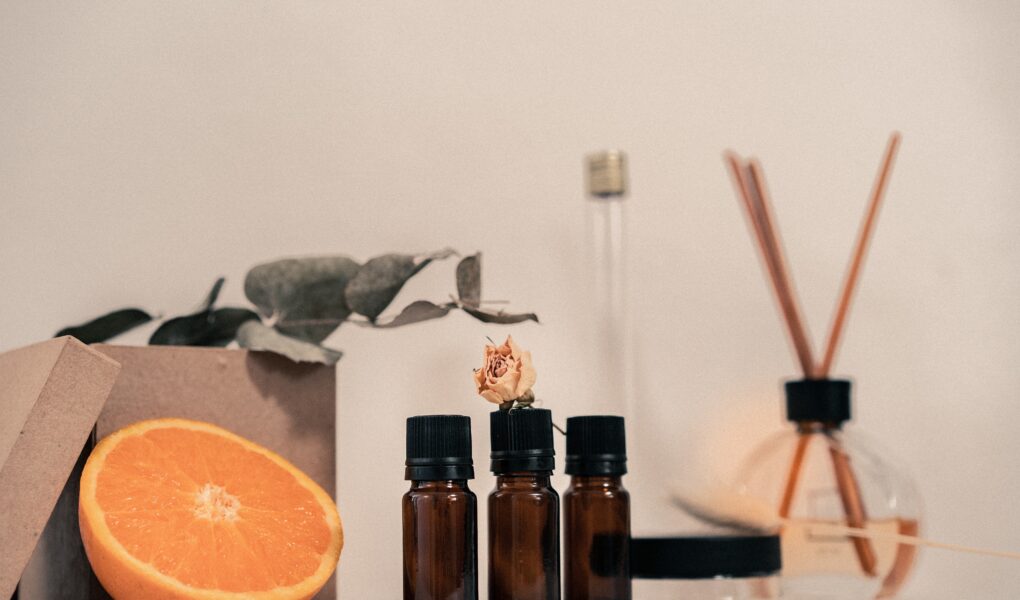In our fast-paced, stress-laden lives, it is vital to prioritize our mental well-being and find effective methods to relax and unwind. Aromatic relaxation has emerged as a popular and scientifically-backed approach to achieve tranquility and promote a sense of calm. By harnessing the power of scents and essential oils, aromatic relaxation offers a unique and holistic way to combat stress, improve sleep, and elevate our overall mental state. In this blog post, we will delve into the benefits of aromatic relaxation and explore the diverse array of essential oils, each with its own medical function, to help you effectively manage stress and enhance your well-being.
The Science Behind Aromatic Relaxation
Aromatic relaxation operates on the profound connection between our sense of smell and our emotions. When we inhale certain scents, the olfactory system triggers a direct response in the brain’s limbic system, which plays a pivotal role in regulating emotions, memory, and mood. This direct pathway makes aromatic relaxation a potent tool for stress relief and relaxation, as it influences our mental state through the limbic system.
The Benefits of Aromatic Relaxation
1. Stress Reduction
- Promotes relaxation: Aromatic relaxation techniques, such as inhalation or topical application of essential oils, induce a state of calm and aid in releasing tension, providing a much-needed respite after a demanding day.
- Reduces anxiety: Certain essential oils, such as lavender, bergamot, and chamomile, have proven anxiolytic properties, effectively reducing anxiety levels and cultivating a sense of tranquility.
- Balances cortisol levels: Aromatic relaxation with specific essential oils, such as rosemary and ylang-ylang, has been shown to regulate the stress hormone cortisol, helping restore equilibrium to the body and mind.
2. Improved Sleep Quality
- Enhances sleep: lavender essential oil, renowned for its sedative properties, is particularly effective in promoting a restful night’s sleep. Other oils, including chamomile and vetiver, also possess calming qualities that aid in combating insomnia and improving sleep quality.
- Relieves sleep disorders: essential oils like valerian and sandalwood have been utilized for centuries to alleviate sleep disorders, including restless leg syndrome and sleep apnea, making them valuable allies in achieving a good night’s rest.
3. Mood Enhancement
- Uplifts your spirits: Citrus essential oils, such as lemon, orange, and grapefruit, have uplifting properties that can elevate mood and alleviate symptoms of depression. Peppermint and jasmine oils also have mood-enhancing effects, instilling a sense of positivity and well-being.
- Eases emotional distress: Essential oils like rose, bergamot, and frankincense possess potent antidepressant and anxiolytic properties, providing emotional support during challenging times and assisting in reducing feelings of sadness and despair.
4. Stress Management Tool
- Portable stress relief: Aromatic relaxation is a portable stress management tool that can be easily incorporated into your daily routine. Whether through the use of essential oil inhalers, roll-ons, or sprays, you can access its benefits wherever you are, whether at work, during travel, or in the comfort of your home.
- Quick relaxation on the go: Aromatherapy inhalers or personal diffusers allow you to experience instant relaxation in demanding situations, providing you with a moment of serenity during a hectic day.

Exploring Essential Oils and Their Medical Functions
Below are several essential oils, along with their unique medical functions:
- Lavender: Calming, promotes relaxation, alleviates anxiety, aids sleep.
- Chamomile: Soothing, relieves stress and anxiety, improves sleep quality.
- Bergamot: Uplifting, reduces anxiety and depression, promotes emotional balance.
- Rosemary: Balancing, enhances cognitive function, reduces cortisol levels.
- Ylang-Ylang: Relaxing, reduces stress and anxiety, aids in managing hypertension.
- Citrus oils (Lemon, Orange, Grapefruit): Uplifting, energizing, mood-enhancing.
- Peppermint: Refreshing, invigorating, boosts mental clarity and focus.
- Jasmine: Uplifting, promotes positivity, enhances mood and confidence.
- Frankincense: Calming, promotes deep relaxation, eases anxiety and depression.
- Sandalwood: Grounding, aids in meditation, supports emotional balance.
Conclusion
In the midst of our demanding lives, prioritizing our mental well-being is of paramount importance. Aromatic relaxation offers a scientifically-proven and holistic approach to achieving inner peace and tranquility. By leveraging the power of scents and essential oils, you can effectively combat stress, enhance sleep quality, uplift your mood, and manage stress levels more effectively. Explore the diverse array of essential oils, each with its unique medical functions, and incorporate aromatic relaxation techniques into your daily routine. Let the captivating aromas transport you to a state of serenity, enabling you to lead a happier, healthier, and more balanced life.



